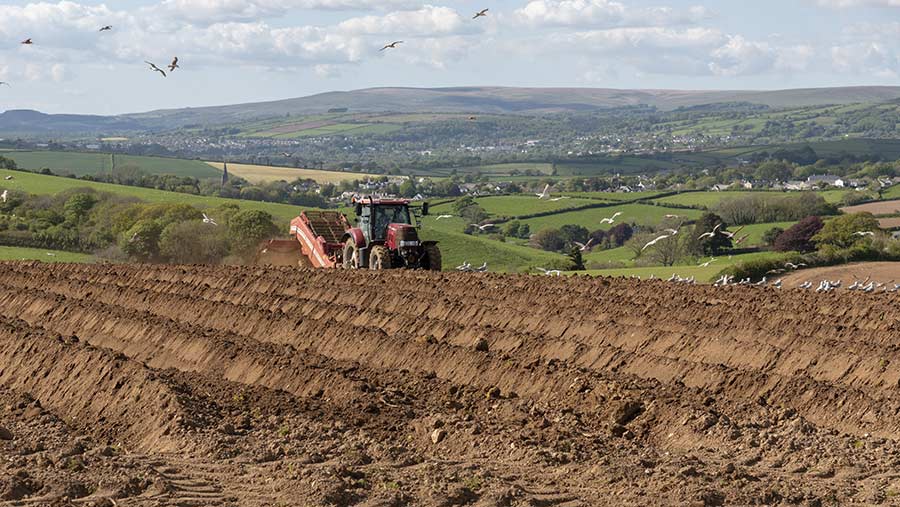Opinion: Now is the time to promote British food and farming
 © Petert2/Adobe Stock Photo
© Petert2/Adobe Stock Photo Brian Richardson is head of agriculture at Yorkshire and Clydesdale Bank. In this week’s Talking Point he discusses food security in the light of the Agriculture Bill and coronavirus.
Seeing empty supermarket shelves was a first for the UK, putting farmers in the driving seat for getting food into the shops while maintaining standards and adapting to social distancing.
Given the challenges and sacrifices of Covid-19, the time to shout about this has had to wait.
But, with the Agriculture Bill passing through the House of Commons unamended last week – with no specific protection from lower-standard food imports – now is the time to put farming on the front foot for the future.
We need to affirm where our food comes from and keep government and consumers aware of the requirements of food standards and security of supply.
See also: US trade deal will benefit UK farmers, says Liz Truss
Rightly, and as highlighted by the Covid-19 pandemic, there are concerns that the battle over these is being lost. It was certainly an opportunity missed to enshrine their regulation in the Bill, but it is not the only battle to fight.
New trade deals are worrying, and chlorinated chicken is used as the example to fear – but I believe this is a smokescreen.
The US and other nations are more than capable of producing food to our equivalent standards. Yes, there are different economics and cost structures involved, but that’s a fact of life.
After Brexit, farming was already facing a period of change as we started to focus on a UK-based policy regime, not an EU one.
We were also progressing to meet the net-zero emissions climate goals by 2040. The missing piece was getting the government, public and key influencers on side to support British agriculture while it adapted to these new circumstances.
This crisis provides an opportunity. Having created greater awareness of where our food comes from, to build on this the industry needs to continue to proactively and positively promote what it does.
We have been too accustomed to talking about problems, portraying farming as a business on the back foot – weak and unable to operate without bail-outs, rather than the resilient and robust industry it is.
We need to play to our strengths, concentrating on using our natural resources and our generally great climate, and should focus on producing food as cost-effectively as possible.
The AHDB’s work on UK farming’s productivity lag highlights there is work to do here, including room for improving the cost base of the industry.
However, this is not just about farming, it is about the security of our food chains, and I expect food processors and retailers will need to look at this again.
Potentially they could consider the opportunity to bring the industry together as one supply chain. While there are separate and independent businesses, there are shared aims and goals, where different parts could work together rather than against each other, as often seems to be the case now.
Brexit was always going to be a challenge. I believe there is a way through, and agriculture could even emerge stronger, albeit needing to refocus and with some individual farm units requiring a restructure.
Covid-19 has added to this, but has also highlighted the importance of the food supply chain and the excellent work farmers do in making sure shelves are filled with top-quality food, offering incredible value for money.
I remain positive about our farming future, but we do need to recognise the need to stay adaptable and work together across the whole food industry to get these messages out.
